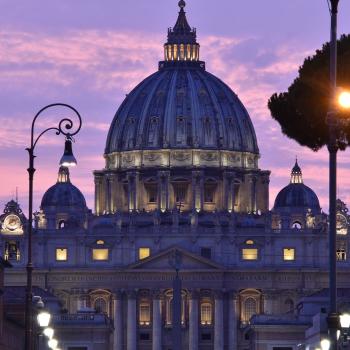This essay was originally published at the author's blog, www.goatmilkblog.com, and is reprinted with permission.
One of the global architects of terror responsible for inspiring the 9/11 tragedy was finally killed this week. Osama Bin Laden, who violently hijacked the faith of 1.5 billion to rationalize his perverse criminal actions, is permanently seared into our collective consciousness as the 21st century boogeyman.
Sadly, in the eyes of many Americans, Bin Laden has also become one of the most visible icons of "Islam" alongside Muhammad Ali and Malcolm X. Furthermore, ten years after the 9/11 tragedy, 60% of Americans say they don't know a Muslim, and the favorability rating of Islam is at its lowest ebb.
Muslim Americans, like much of the world, still cannot escape the overbearing shadow of the fallen towers. There is a permanent fork in the timeline of the Muslim American narrative: Pre-9/11 and Post-9/11.
Pre-9/11, I was another awkward, well intentioned, multi-hyphenated Muslim American with exotic dietary habits who prayed five times a day and drank chai instead of alcohol during college.
Post-9/11, I received a special screening in front of my fellow passengers who boarded the plane to North Carolina while observing my Muslim security clearance zoo exhibit.
I felt like smoking a cigarette and spouting a witty barb after my intimate encounter with the TSA.
Thoroughly cleared and cleansed of any potential terrorist-y vibes, I was the last to board the packed plane.
I headed down the aisle to find my inconceivably small, economy seat located near the end of the plane.
For the first time in my life, my fellow airline passengers all looked at me with utter fear, eyed widened and mouths agape.
My brown face, five o'clock shadow and inconvenient TSA screening immediately profiled and lumped me as one of "them" who attacked "us" on 9/11.
My attempts to placate them with friendly smiles and nods only intensified their palpable anxiety, and their discomfort turned to horrified stares. I pulled an audible and decided to simply bow my head, make no loud, sudden noises, and move as quickly as possible to my masochistic seat.
As a shy, awkward, overweight kid whose first language was Urdu, I had experienced mockery, ridicule and even alienation in my childhood. But, before that day, I had never been made to feel like Boo Radley or Darth Vader.
I had never terrified anyone by merely "being" me. It was a jarring and disturbing experience.
This memorable experience, along with others like it, presented me a tremendous opportunity to bridge these seemingly impenetrable divides caused by ignorance, misunderstanding, and fear.
What else could explain the graffiti on a Portland mosque that included "Go Home" and "Osama Today Islam tomorrow" (sic) mere hours after Osama bin Laden was reported killed?
The rich and complex identity and narrative of Muslim American communities, who are the most diverse U.S. religious group in terms of ethnic diversity, socio-economic status, education levels and political affiliation, is now personified by a tall, lanky, bearded terrorist leader who suffered from narcissism, hypocritical delusions of religious authority and a compulsive need to release You Tube videos.
For example, a Muslim American student was asked by her ninth-grade Algebra teacher if she was grieving over the death of her "uncle," in reference to Osama bin Laden. The teacher was subsequently disciplined for his disrespectful and ignorant remark.
The lumping of nearly 250 years of Muslim American history with the icon of terror and wholesale categorization of two million American citizens as potential suspects explains why nearly 28% oppose Muslims sitting on the Supreme Court and a third oppose us running for President.
A new report found the Department of Homeland Security continues to push Muslims into detention and deportation "even without explicit racial and religious targeting built into Special Registration."
"We're seeing a trend where Muslims are being deported, detained and denied entry into the United States for no good reason except tenuous affiliations or unsubstantiated claims," said Sameer Ahmed, an attorney at Asian American Legal Defense Fund (AALDEF).




